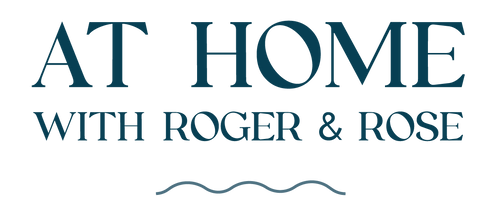Are you eager to get back to your garden? Or maybe you’ve never had a vegetable garden before but can’t wait to get your hands in the dirt this year.
The time has come, despite what the thermometer says, to start certain vegetable seeds…indoors that is. And to make sure we get off to a great start we reached out to a local gardening expert, Sarah of Pigeon Lake Permaculture, to gather her sage advice.

Firstly, tell us a little bit about your business "Pigeon Lake Permaculture". When did you and your husband Tyler start it, what products do you sell and where do you sell them?
Sarah: Pigeon Lake Permaculture is a small-scale market garden we started in 2021. We focus on organic growing methods and permaculture practices, which means we strive to work WITH nature, instead of against it. We offer fresh vegetables and eggs every weekend (June through October) at our farmstand as well as CSA shares and weekly fresh food boxes. Our garden overlooks Pigeon Lake, located at 2041 Pigeon Lake Road.
You’ve started some seeds already. What supplies do you need to start seeds indoors?
Sarah: The average gardener really only needs some basic supplies to get started including seed starting potting mix, starter pots or a starting tray with a dome cover, a spray bottle with water to mist the plants and of course your favourite vegetable seeds!






For those of us who are new at this, why is it that we need to start certain vegetable seeds indoors in early Spring?
Sarah: Starting seeds indoors has many benefits, including an earlier harvest. While some crops can be direct seeded, you can start them indoors and move up the harvest date. Another perk of starting seeds indoors is the ability to grow long season crops in short season climates, like here in Ontario.
Which seeds should we start now (late March/early April)?
Sarah: This is a great question, there are so many seeds you can start planting indoors right now such as:
- Broccoli
- Cabbage
- Cauliflower
- Kale
- Onions
- Peppers
- Tomatoes
- Herbs
Note that you should know your plant hardiness/growing zone before planning your garden. Follow a seeding calendar for that growing zone for a more accurate timeline on indoor planting, transplanting, direct seeding, etc. In Bobcaygeon we are Plant Hardiness Zone 5a.

Do you have a few tips you could share for starting seeds indoors?
Sarah:
- Pot with seed-starting mix: These mixes don't contain any actual soil, but they provide ideal conditions for sprouting seeds.
- Plant seeds at the proper depth: Check the seed packet for planting depth. You don't need to measure precisely, but be careful not to plant any deeper than the directions suggest.
- After sowing, set the containers in a warm, bright location. A sunny window will do just fine!
- Once seedlings have two sets of leaves, it's time to thin: You want one seedling per pot, so choose the healthiest, strongest-looking seedling to keep. Snip the other seedlings off at the soil line and discard them.
- Begin fertilizing weekly: Use a half-strength fertilizer once your seedlings have one or two sets of leaves. Organic fertilizers are a good choice, since they provide a range of nutrients, including micronutrients.

What seeds do you start directly in the ground and how do you decide when it’s safe to plant outdoors?
Sarah: There are so many seeds you can direct seed into the ground! A few easy vegetables to directly seed into your garden are:
- Beans
- Beets
- Carrots
- Cucumber
- Lettuce
- Peas
- Radish
- Spinach
- Squash
- Watermelons
- Pumpkins
For most vegetables, you’ll want to wait until the last frost date to direct seed. Our last expected frost date here in Ontario is usually around the second week of May. Again, each growing zone is different so it’s best to follow your growing zone seeding calendar!
You grow organic vegetables at your farm and you have farm fresh eggs from your free range hens. When do you anticipate starting to harvest and how can we purchase your products this Spring and Summer?
Sarah: Each vegetable harvest date varies.
There are a few cool weather crops we can harvest in June, such as strawberries, rhubarb, asparagus, beets, broccoli, cabbage, radish, peas, lettuce, spinach, and many herbs.
The rest, and the majority of, our summer vegetables are harvested early July through to September.
You can purchase our produce and eggs at our at our farmstand, located on our farm, at 2041 Pigeon Lake Road. We also offer a weekly ‘fresh-food box’ which includes 6-10 vegetables and herbs that are harvested fresh each week. This is the best way to practice ‘eating with the seasons’, while enjoying ultra-fresh, locally grown, organic produce.
We are open every Friday to Sunday beginning mid June to early October. If you can’t make it over the weekend, you can contact us any time via Facebook, Instagram, or email and we’re happy to arrange a time for produce pickup that’s convenient for you.
Instagram & Facebook:
@pigeonlakepermaculture
Email: pigeonlakefarm@outlook.com

Along with this valuable information from Sarah, here is a handy “Seed Starting Guide” for our region to make sure we don’t miss out on getting our gardens growing!

Happy Spring and happy gardening everyone! I look forward to seeing you in the store. Sincerely, Rose

